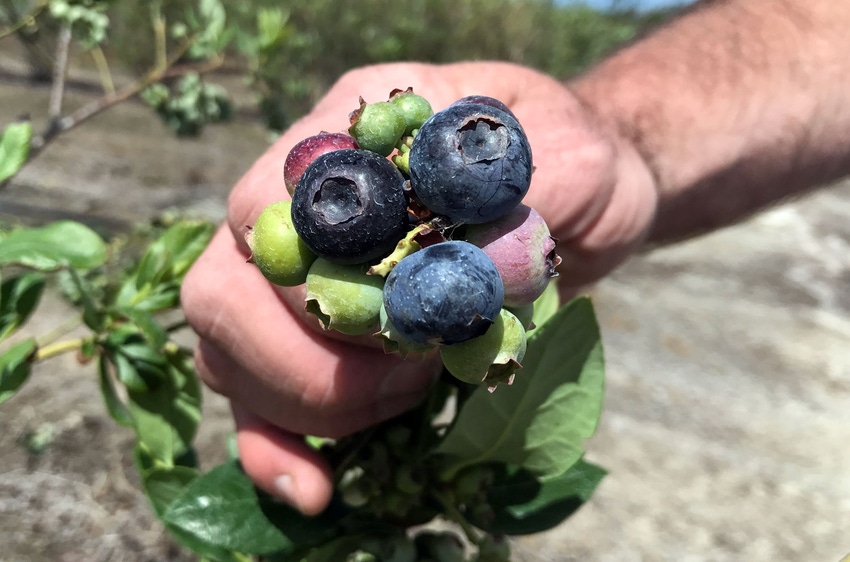
Like other U.S. fruit and vegetable growers in recent years, U.S. blueberry producers face a continued marketing crisis from imports and are organizing to address the problem.
Last September in response to industry efforts, U.S. Trade Representative Robert Lighthizer asked the International Trade Commission, or ITC, to start a Section 201 global safeguard investigation into increased blueberry imports and if they caused injury or threat to U.S. blueberry growers.
In December, U.S. blueberry growers launched the American Blueberry Growers Alliance to rally political support against the rising imports. Citing U.S. import data, the alliance says U.S. blueberry growers have been "devastated by an influx in blueberry imports by 75% in the past five years."
Jerome Crosby is chairman of the new alliances' board of directors and owns Pineneedle Farms in Willacoochee, Ga. On Jan. 12, Crosby testified before the ITC.
“Because of booming domestic demand, we should be enjoying a market in which there is room for both domestic and foreign growers to profit,” he said. “However, foreign government policies targeting the United States market and large corporate import interests have combined to bring massive volumes of blueberries into our market, increasingly during periods that in the past provided growers with the bulk of their revenues and often all of their profits for the year.”
Brittany Lee is the executive director of the Florida Blueberry Growers Association and owner of Florida Blue Farms in Orange Heights, Fla. The situation is no better for Florida blueberry growers.
“The massive increase in Mexican imports during our harvesting season has crippled the Florida blueberry industry and threatens its very existence,” she told the trade commission “Over the period 2009 to 2019, we saw imports from Mexico increase by 2,111%. We have experienced a significant decline in price per pound for fresh blueberries in Florida, and a huge loss of market share.”
Members of Congress also testified in support of American blueberry growers, including Reps. Austin Scott (R-Ga.), Bill Huizenga (R-Mich.), Earl L. “Buddy” Carter (R-Ga.), Gregory Steube (R-Fla.) and John Rutherford (R-Fla.).
Over several decades, the U.S. blueberry industry invested resources to improve blueberry growing practices and educated consumers to build market demand for the healthy blueberries.
The efforts worked, but foreign blueberry producers are taking benefit, encroaching on the U.S. market "in some instances by creating industries out of nothing and exploiting cheap labor and poor environmental regulation overseas,” said Rex Schultz of Heritage Blueberry in Bangor, Michigan and President of the Michigan Blueberry Advisory Committee.
“Producers in foreign countries are totally dependent on our market, and they have every incentive to keep shipping more and more product here. This is not a sustainable situation for the American blueberry farmer," Shultz told the ITC.
Blueberry growers are not the only U.S. farm groups threatened by dramatic increases in Mexican imports.
Last September, along with the request to investigate blueberries, the USTR led other federal agencies to form a plan to support U.S. producers against imports, particularly concerns regarding imports of Mexican strawberries, bell peppers. In December, USTR asked the ITC to open investigations into the import of cucumbers and squash, too, on how those imports affect U.S. seasonal markets.
Last August, Georgia Fruit and Vegetable Growers Association leadership testified before U.S. trade officials about the crisis Georgia farmers faced due to an increase in imported produce from Mexico.
Mexican imports have increased by 551% since 2001 and the Mexican government has subsidized a massive increase in protected agriculture infrastructure and acreage, GFVG said then.
About the Author(s)
You May Also Like






